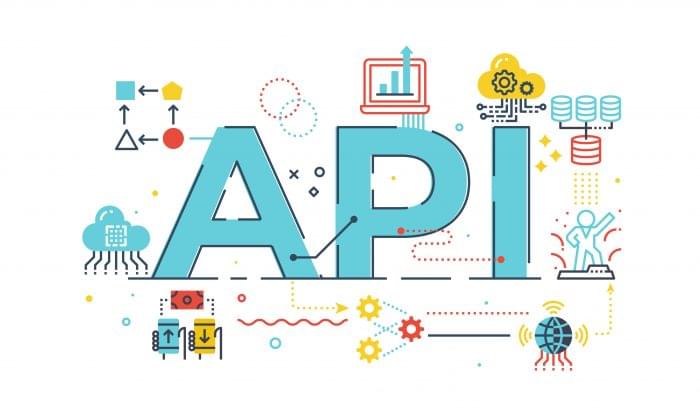API management refers to the process of managing, distributing, and analyzing different APIs that connect applications and data across clouds and local environments. It includes their functions, like creating and publishing web application interfaces, enforcing, collecting and analyzing usage, securing access, monitoring, and reporting on performance.
Using an API management tool is a useful way to manage multiple API requirements. These tools help you with documentation, increased security, thorough testing, versioning, and reliability.
Jump to:
- What is an API Management Software?
- Compare Top API Management Platforms
- Key features of top API management software and tools
- Choosing the best API management software and tools for your business
What is an API Management Software?
API management software helps developers with the design, deployment, and maintenance of APIs for a range of business needs and for varying sized efforts. The management process includes creating web application interfaces, publishing them for use, securing and controlling their access and use, supporting subscribers along the way, collecting and analyzing data, and reporting on performance metrics. API management software is often referred to as an API management tool or platform. There are so many reliable tool options to choose from, each with their own features, customizations, and deployment options.
These tools all have a few general functions in common, including documentation, security, a developer portal, and usage reporting. IT professionals will find the best solution for their specific needs by determining what they need and what they would like to have, then narrowing it down to a few options. Once you have a few in mind, compare pricing, consider customer reviews, and the flexibility and customization options the tool provides.
Compare Top API Management Platforms
| Analytics | Backward Compatibility | Customizable Deployment | Disaster Recovery | Open Source Support | |
| Yes | Yes | Yes | Yes | No | |
 |
No | No | No | No | Yes |
 |
No | No | Yes | No | Yes |
 |
Yes | No | No | No | No |
 |
No | No | No | No | Yes |
 |
No | No | No | No | Yes |
Apigee: best for deployment flexibility
With Apigee hybrid, you get to choose where to host your APIs, whether on site, in the cloud, or both. Apigee Integration is a unified platform that allows API management and integration scalability for IT teams. This solution is best suited for small to medium size customers looking for deployment flexibility. Apigee also offers disaster recovery and can handle requests and continuous data flow without interruption.
Mulesoft Anypoint: best for accelerated delivery
The Anypoint platform by Mulesoft is a solid solution if you are looking for speed of delivery. It offers a series of reusable assets that makes developing faster and cheaper. Prebuilt APIs, connectors, templates, examples, and other integration assets help you quickly plan and build a customized API portal to get done what you need to right now and build on it as you go.
Microsoft Azure: best for customization
Azure by Microsoft is known for its deep customization options. Users can set up a portal quickly and easily, move around components, and add in their own assets like text and images into a variety of layouts to best match their brand. You can also manage APIs across clouds and on premises, deploying API gateways alongside those hosted in other clouds and on site with optimal traffic flow.
3scale: best known for its developer portal
Red Hat offers a sophisticated developer portal that allows developers and developer managers the ability to design using an out-of-the-box solution. Interactive documentation makes productivity fast and accurate. An interactive API has the ability to understand the customer’s needs, giving them full control through intuitive navigation and guidance.
Akana: best for lifecycle management tools
Akana’s API management platform has been described by IT professionals as a true partner when it comes to digital transformation. They are experts in this area and provide superior support including securing and managing the full lifecycle of APIs through their management tools and services. Expert monitoring capabilities round out the offering making it easy to troubleshoot and check by developers and non-technical business owners alike through a cleverly designed dashboard with a variety of views.
Workato: best for automation
Workato API platform is a modern full-lifecycle API management tool that let’s developers build, use, and maintain APIs completely in the cloud. A full suite of customizations lets you own your API experience, giving you control through a robust dashboard. It is the best choice if you want intelligent automation, constant communication flow, and critical data synced between different applications. Go beyond automating single tasks and automate entire business processes, interweaving team actions with set automated tasks.
Key features of top API management software and tools
API Management tools vary in features and have a lot in common to help developers and the businesses they work in move quickly and competently in the technology space. Here are some capabilities you should consider when choosing an API management software, platform or tool.
API Lifecycle Management
API lifecycle management involves all of the steps involved in the life of an API, including the overseeing of all aspects of managing an API from planning and development to testing and deployment. The full lifecycle provides an organization with the ability to build, publish, scale, analyze, and monetize APIs through retirement. APIs are the foundation of digital business and strategy and there is high demand for creating ecosystems and managing them quickly with an effectively managed API program.
Security
API security is one of the most important features you will consider in your search for the perfect tool. Security best practices include establishing trusted identities and controlling access to services and resources through the use of tokens that are assigned to established user identities. Each set up has unique vulnerabilities and an API gateway is an important part of an API solution. API gateways help enforce pre-determined policies to control authorization, authentication and manage traffic. Think of the gateway as policing or guarding the data within.
Developer Portal
A developer portal is a must-have one-stop-shop where developers and developer managers can easily locate, access, learn all about and experiment with different APIs. This is where they will find a directory and ample documentation, can request access, view sample code for different configurations and customizations, and try them out. Think of a portal like an app store for APIs. Often you will find case studies and examples of applications that have been built using an API.
Documentation
API documentation refers to the technical content deliverable that documents and API — the instructions on how to use and integrate with an API. Documentation should fully describe the API’s functionality and can take the form of a reference document, a user guide, or an interactive tutorial with examples. Documentation should always be up to date and include the latest information and APIs and how they operate.
Usage Reporting
This refers to the statistics and analytics data that can be automatically pulled using scripts or programs to provide accurate service usage information including use, user status, and security. Running and reviewing usage reports can tell a developer or manager detailed and valuable information about the health and effectiveness of the program.
Choosing the best API management software and tools for your business
Choosing an API management software solution for your business requires knowledge, research and a list of requirements specific to your needs. Consider which features are most important and which ones are “nice to haves” in order to make the best business, financial, and time-sensitive decision for your effort. A small shop, a mid-market business, and a large corporation or enterprise all have very different and unique needs and challenges when it comes to managing API requirements.

